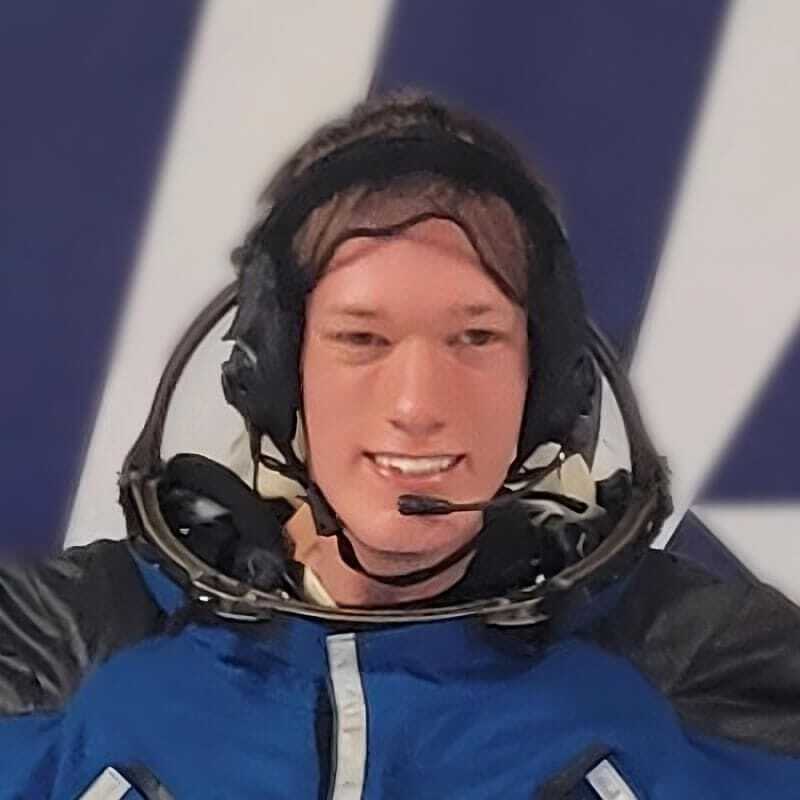Blue Origin's All-Female Space Flight: A Journey Into the Cosmos or a Harsh Reality?
by Jasleen Chana, The Conversation

For the first time since Russian cosmonaut Valentina Tereshkova's solo flight in 1963, a spacecraft will enter orbit with only women aboard. Blue Origin's all-female space flight crew, which includes popstar Katy Perry, is set to take off this spring.
Jeff Bezos' crew is assembled from successful and well-known women, also including television presenter Gayle King, producer Kerianne Flynn, former NASA scientist Aisha Bowe, civil rights activist Amanda Nguyen, and journalist Lauren Sanchez. Promotional material for the flight claims that Perry "hopes her journey encourages her daughter and others to reach for the stars, literally and figuratively."
The glamorous optics of this spaceflight are supposedly designed to encourage women to strive for their dreams. The glossy narrative tells others that they can be just like these extraordinary women. Yet, behind this aspirational ideal, there is a more problematic story regarding successful women in science and their roles in public.
My Ph.D. research examines memoirs written by women astronauts. They construct appealing depictions of women who are successful and exceptional. But in practice their success stories are nigh on impossible for ordinary women to emulate.
This is epitomized in astronaut Catherine Coleman's reaction to wearing a spacesuit designed for men. In her 2024 memoir, she wrote: "Most of the time, I took the approach that if the suit didn't fit, I would simply wear it anyway—and wear it well. Wear it better than anyone expected."
As this quote shows, women who have traveled to space tend to construct themselves as having worked exceptionally hard to deny the norms of what is expected of them and to offset systemic biases.
From the outset of her memoir, Coleman emphasizes that she's always had to be an "exception" from the rest of humanity, which feels alienating. But she also consistently suggests that her life was destined to be this way. "Space felt like home to me," she says, tacitly acknowledging that she was always meant to be there.
| Astronaut | Significant Quote | Source |
|---|---|---|
| Catherine Coleman | "If the suit didn't fit, I would simply wear it anyway." | Sharing Space |
| Mae Jemison | "Strange, but I always knew I'd be here." | Find Where the Wind Goes |
Due to the systemic barriers they faced, women astronauts frequently encounter pressures that compound their experiences. For example, Eileen Collins, the first woman to pilot and command a space shuttle, discusses in her memoir the immense expectations placed on her performance due to her gender. She felt that the need for flawless execution heightened the stakes not only for herself but also for all future women in her profession.
“Current and future women pilots are counting on me to do a perfect job up here.” – Eileen Collins
Beyond the Glamour: The Reality of Space Flight
Space travel promises exhilarating opportunities for exploration; however, the narratives surrounding it often gloss over the less glamorous realities. Many women who have made significant contributions to space travel and exploration did so against numerous odds. Behind the achievements often lie struggles with imposter syndrome, sacrifice of personal life, and constant scrutiny.
The upcoming Blue Origin mission embodies a dual narrative: it highlights female empowerment while also revealing the inequities that persist in representations of women in STEM fields. Promotional campaigns emphasize trailblazers, yet they obscure the structural disadvantages many women experience pursuing careers in these fields, particularly women of color.
The Cost of Being Exceptional
The aspirational aspect of these journeys serves to inspire others; however, it also places immense pressure on individuals to be exceptional. The accomplished women preparing for the Blue Origins flight are marred by the scrutiny surrounding them. This brings forth the question of whether this representation will ultimately serve as an authentic reflection of women in science and technology.
As the Blue Origin flight approaches, reflections on the symbolic and literal implications of female representation in space will continue to dominate discussions surrounding the event.
If the Blue Origin mission is to be a lodestar for a universal feminist narrative, using women's spaceflight as a measure of progress, then it must also consider the incongruities and uniqueness of women's experiences. Ultimately, moving away from narratives that assert that science, spaceflight, and success are synonymous only with fame and exceptionalism is crucial.
Conclusion
The all-female space flight is a momentous achievement worthy of celebration. However, it is essential to acknowledge that the optics of such milestones often gloss over the systematic barriers that many women face in their pursuit of excellence in predominantly male domains. By understanding and confronting these underlying issues, we can foster a more inclusive narrative that empowers not just the exceptionally visible women at the forefront but all women aspiring to greatness in STEM fields.




